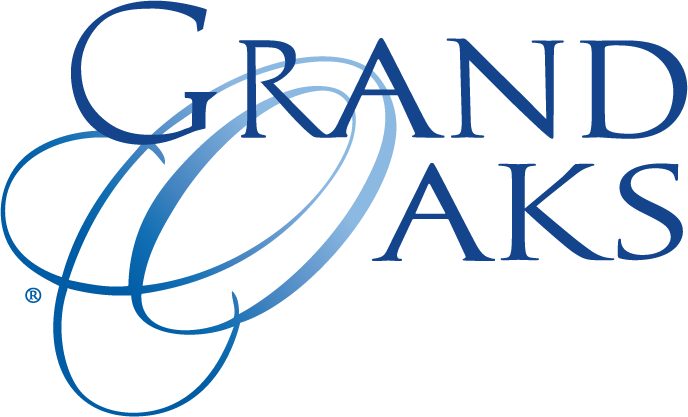4 Min Read
Healthy Nutrition As You Age

Diet and healthy nutrition go hand in hand, especially as you get older. According to the World Health Organization (WHO), many diseases that seniors suffer are a result of a poor diet. These include cancers of the prostate, colon, and pancreas often linked to fatty foods. Degenerative diseases like diabetes and osteoporosis are diet-related, too.
Food is the best way to get the nutrients your body needs. While your doctor may recommend vitamins and dietary supplements depending on your needs, it’s important to choose foods and beverages loaded with nutrients that deliver better health at every stage of life.
“The food we prepare for our residents is designed to be enjoyed, create memories, and add a healthy balance without being obvious,” says Andrew Conlin, executive chef at Grand Oaks. “Food is medicine. A healthy balance leads to an overall healthier person. No limitations, just moderation.”
Always begin with the basics. Prepare meals rich in these super nutrients for seniors.
Calcium and Vitamin D
These key players help to maintain bone health. Each day try to get three servings of low-fat or fat-free dairy products, including milk, yogurt, and cheese. Other healthy nutrition sources of calcium include cereals and fruit juices, dark leafy vegetables, and canned fish. You can get vitamin D from fatty fish like salmon, eggs, and fortified foods and beverages.
Dietary Fiber
With age, our digestive systems begin to slow down. The walls of the gastrointestinal tract thicken, and this can lead to constipation. But foods rich in fiber promote proper digestion by moving food through the digestive tract. They can also help to reduce the risk of heart disease and type 2 diabetes. Eat nuts, whole-grain cereals and breads and pasta, brown rice, beans, peas, fruits, and vegetables regularly.
Iron
Iron produces hemoglobin that carries oxygen in the blood from the lungs to the rest of the body. If you don’t get enough, there’s a limited supply of oxygen for the body tissues. You may feel tired or lethargic, and it could lead to anemia. Good sources of iron include spinach and other dark leafy greens, tofu, peas, lentils, prune juice, and iron-fortified cereals and breads.
Magnesium
Think of magnesium as a super nutrient. It keeps a number of functions healthy and strong, from your heart to your immune system to your bones. When you get older, your body is less able to absorb magnesium, plus some medications for seniors decrease the absorption, too. Choose foods like whole grains, fresh fruit and vegetables, and nuts for magnesium.
Omega-3 Fatty Acids
Fatty acids help to prevent inflammation that can cause cancer, rheumatoid arthritis, and heart disease. These can also slow down the progression of macular degeneration, which leads to poor vision. Fatty acids can reduce the risk of Alzheimer’s disease and keep the brain alert, too. To get your fill of fatty acids, opt for fish, mainly tuna, mackerel, and salmon, and flaxseed, soybeans, canola oils, and walnuts at least twice a week.
Potassium
Did you know that potassium may lower your risk of high blood pressure? It aids in cell function and can even lower your chance of kidney stones and strengthen the bones. You can get potassium in many fruits and vegetables, including bananas, prunes, and potatoes. Beans, fat-free dairy products, and foods with little or no added salt are excellent sources of potassium, too.
Vitamin B12
For some seniors, the body is unable to absorb enough vitamin B12. The body can’t make this essential nutrient on its own, so it must come from diet and supplements. It’s necessary for keeping the nerves healthy and supporting red blood cells and healthy brain function. For healthy nutrition high in vitamin B12, select fortified cereals, lean meats, fish and seafood like clams, salmon, and sardines, and milk and dairy products.
Water
Everyone needs water to survive and thrive. With age, the body’s ability to conserve water decreases, so you may not feel thirsty often. But, you still need water. Drinking at least 8 glasses of water daily is key to maintain good health. If your diet is high in fiber, you may need to drink even more because fiber absorbs water so quickly.
As a good rule of thumb, fill your plate with these healthy foods.
- Lean protein—lean meats, fish, seafood, eggs, and beans
- Fruits and vegetables—look for a variety of flavors and textures and colors from orange to green to purple
- Whole grains—brown rice, whole-grain pasta, whole-grain cereals, and crackers
- Low-fat dairy—milk, yogurt, cheese, and other alternatives
- Tea, coffee, and water—don’t forget to stay hydrated!
But, try to avoid these.
- Foods high in sodium or salt
- Added sugars from soda and other sweets
- Solid fats when cooking (opt for healthier cooking oils instead)
Here’s a helpful infographic from the National Council on Aging that provides seniors with ways to eat well and improve healthy nutrition as they age. Consider downloading, printing, and hanging this near your kitchen to reference.

0 Comments